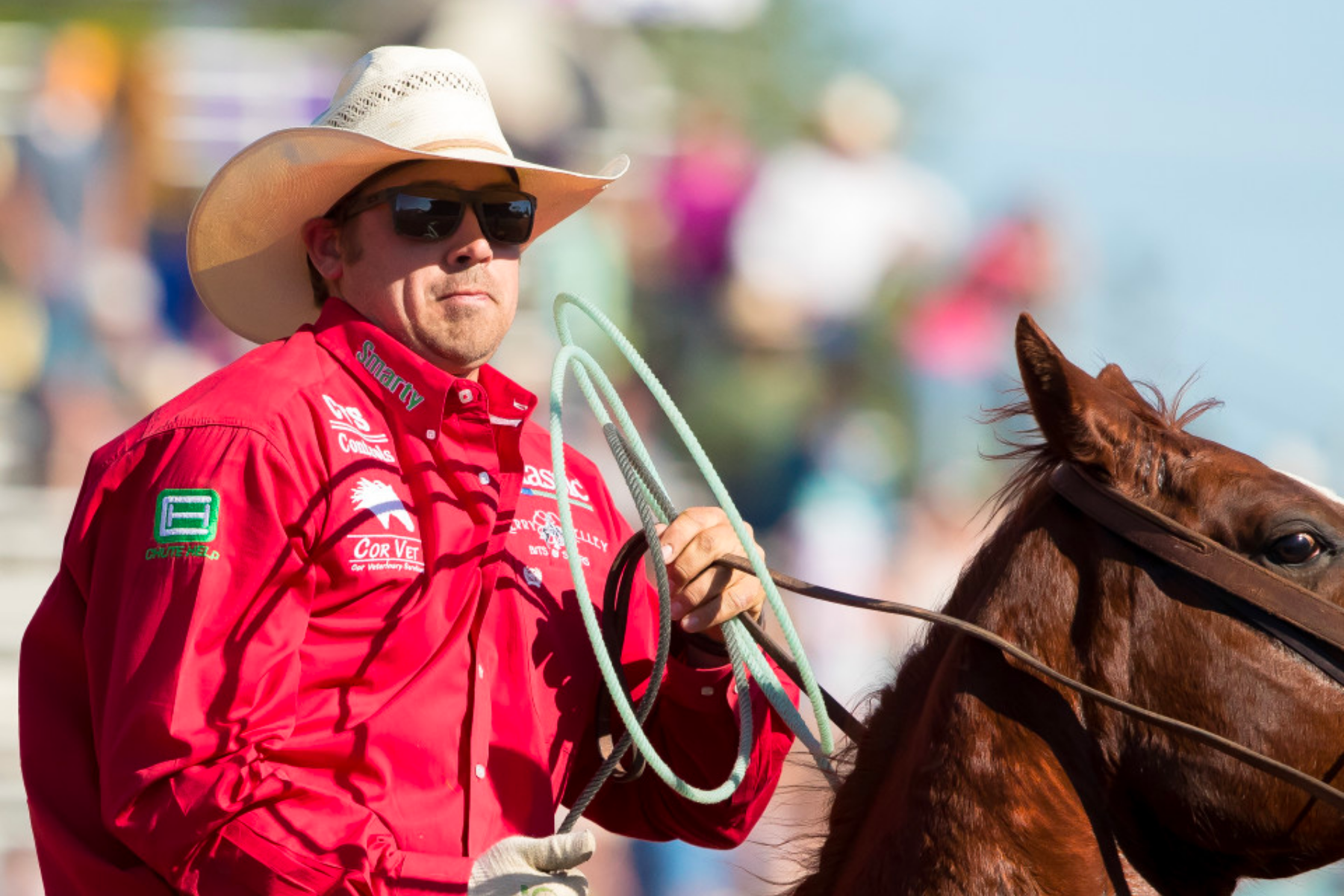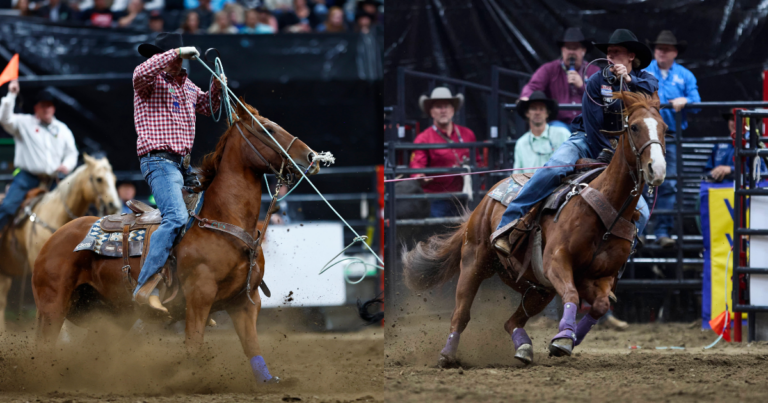While the perfs still don’t officially include team roping (so we can’t yet agree it’s the “greatest outdoor show on Earth”), the Stampede partnered with the PRCA this year to invite 30 teams to what they’re calling the Rocky Mountain Cup on July 12. It’s in an indoor arena next to the main rodeo. The $100,000 purse (Canadian dollars) does not count toward the CPRA standings but DOES count toward the PRCA world team roping and all-around standings.
Invited were the top five headers and heelers from last year’s CPRA standings, top 13 headers and heelers from last year’s PRCA standings and the top 12 in the current PRCA standings through May 17. The format is two full long rounds, a semi-finals and a Showdown round. The champs will split $25,000 and it pays through tenth place, along with $37,000 in the long rounds.
READ MORE: Shut Out, Eh?: Team Roping in Canada
That was enough to entice Texan Ryan Motes to head north with his Alberta-native partner Levi Simpson. So they figured they’d enter some CPRA-sanctioned rodeos, too.
“I’d never been to the Canadian Finals or up here at all besides Innisfail and Ponoka,” Motes said a week before Calgary. “You need to go to 15 rodeos to make the CFR and I’d never done it before.”
He was ranked about 20th in the CPRA standings before placing in a round at Ponoka. The 48th Annual Canadian Finals Rodeo, Nov. 2-6 in Red Deer, Alberta, takes the top 12, and last year paid 2001 champs Clay Ullery and Tyce McLeod $41,640.
“My wife’s never been to Calgary, so she’s driving a rig up,” said Motes, who was invited to the Stampede’s first stand-alone team roping last year in Ellensburg, Washington. “It’s cool. It’s a start. Last year they added $30,000 total and this year it’s $35,000 a side. Team roping has gotten big up here and it’s catching on. It’d be cool to get it into Calgary – the biggest rodeo up here. Some guys have roped really good all their lives and never got to go there.”
But as of late June, even after accepting invitations, many of those 25 PRCA-ranked teams hadn’t decided if Calgary’s pot was worth the hassle at the border and risk of being detained.
“If it paid $50,000 to win, there’d be no question,” said Jr Dees, who was invited with Levi Lord. “But the most you can win is around $20,000, so Levi and I were 50/50 about whether to go. Some guys planned to fly, thinking there are less hoops to jump through. I heard they’re letting people into Canada, but then they’re having trouble getting back down here.”
Twenty years after Canadian rodeos added team roping, the pandemic shook our northern neighbor so fiercely there was no 2020 CFR. It was back last year, but with no non-Canadians. That’s because, if you’re not Canadian, you won’t get into Canada if you’re not fully vaccinated. To cross the border (and avoid a $5,000 fine), you must use a mandatory app called ArriveCAN, which tracks how and where you’re crossing and spits out a receipt once you upload proof of vaccination. You’re still randomly Covid-tested at the border and a positive gets you quarantined for 10 days.
“I haven’t been up there since Covid hit,” said 2018 reserve Canadian champion heeler Chase Tryan of Montana. “That’s because of the vaccine thing, mainly; and beliefs. I enjoy it up there and if they lift the vaccine thing, I wouldn’t mind going back again.”
Besides Motes, another Texan who braved the hassle at the border and made it count was Cole Davison. He teamed with Alberta’s Kolton Schmidt to win Innisfail in 4.6 seconds and Stavely in 4.1 for a weekend haul of $4,355. In fact, with nearly $11,000 earned by late June, Davison was leading the Canadian heeling standings even before Ponoka, Wainwright, Sundre and Airdrie.











